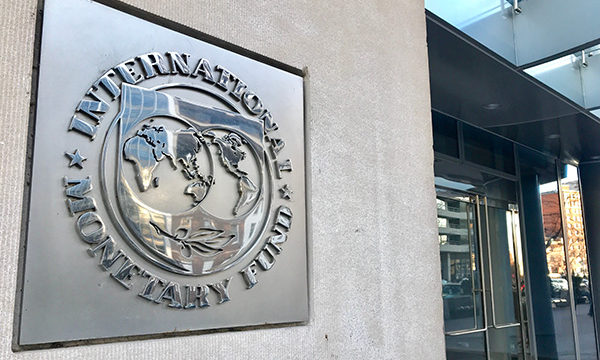As consumer and business confidence levels recover to pre-COVID levels, a key priority should be the “unwinding of pandemic-related support measures and a shift to policies targeted at facilitating resource reallocation to productive and high-growth potential activities”, the International Monetary Fund (IMF) has concluded after its Malta Mission.
According to the organisation’s ‘Staff Concluding Statement’, the pace of the unwinding of COVID support measures should balance the near-term need to support growth and long-term economic stability.
“As the economic growth gains momentum”, the IMF stated, “the authorities should prepare a plan for tapering support measures… including adjusting their size and eligibility criteria.
“Unwinding of support measures will need to be carefully managed and well-coordinated between fiscal and financial sector policies to avoid “cliff effects” that could detail the recovery”, it added, referring to the effect by which an increase in financial resources for consumers sees them lose access to support, thus making a net loss financially.
The organisation acknowledged that the “swift and bold policy response” to the pandemic helped mitigate the impact of the “worst recession in decades”, preventing “large-scale layoffs, bankruptcies, and credit disintermediation”.
Discussing Malta’s outlook for the future, the IMF indicated that despite promising predictions for an economic recovery in Malta, a possible global resurgence of the COVID pandemic presents a key downside risk.
Additionally, the organisation touted the uncertain long-term impact of the crisis on the economy, a labour shortage due to the reduced inflows of foreign workers, and a possibly prolonged placement on the Financial Action Task Force (FATF)’s grey-list as other key risks.
This greylisting, the IMF explained, could adversely affect correspondent banking relationships (CBR) and foreign direct investment inflows.
On a more optimistic note, the organisation identified that “recovery from the pandemic could be faster than expected due to swift global vaccination boosting confidence and economic activity”.
As things stand, the organisation has raised its economic projections for Malta, considering the country’s output grew by 1.9 per cent in Q1 2021, amidst signs a labour market tightening is emerging.
The IMF now expects Malta’s economy to grow by 5.75 per cent in 2021, up from the 4.7 per cent it expected in April, followed by six per cent in 20222.
Providing a number of recommendations for ensuring long-term fiscal sustainability, the IMF suggested that when the post-pandemic recovery is on firm ground, policies should focus on rebuilding fiscal buffers.
Additionally, the IMF called for the continuation of efforts to tackle long-standing fiscal vulnerabilities to ensure fiscal sustainability.
Addressing the steps Malta needs to take in light of the countries greylisting by the FATF, the IMF stated authorities need to intensify efforts to demonstrate the effectiveness of Malta’s AML/CFT (anti-money laundering/combatting the financing of terrorism) in a number of ways.
Importantly, they should ensure the accuracy of beneficial ownership information on its registers, enhance the use of financial intelligence to support tax and money laundering cases, and focus on the Financial Intelligence Unit’s analysis on criminal tax offences, said the IMF.
They should also continue their efforts to mitigate financial integrity and repetitional risks in high-risk activities, including virtual financial assets, gaming, and citizenship by investment programmes while conducting close monitoring of CBR pressures, it said.
The IMF’s concluding statement can be accessed in its entirety online.
Featured Image:
Two years since its birth, Moneybase features on Microsoft’s Customer Stories
Moneybase has now just been featured on Microsoft’s latest Customer Stories
Finance Minister confirms continuity of food and energy subsidies
Spending on food and energy subsidies as a percentage of the GDP will be at 0.7% in 2025
MHRA congratulates Glenn Micallef on EU role, highlights positive impact on Malta’s tourism and cultural sectors
The lobby group emphasised that Malta’s cultural assets and sports scene are key factors in attracting visitors and fostering economic ...






